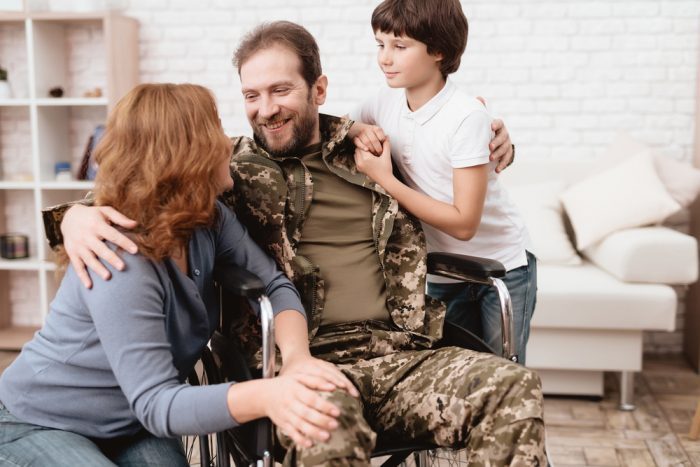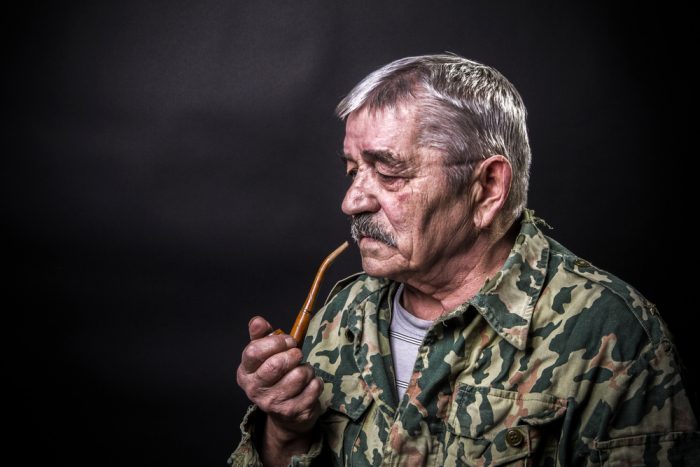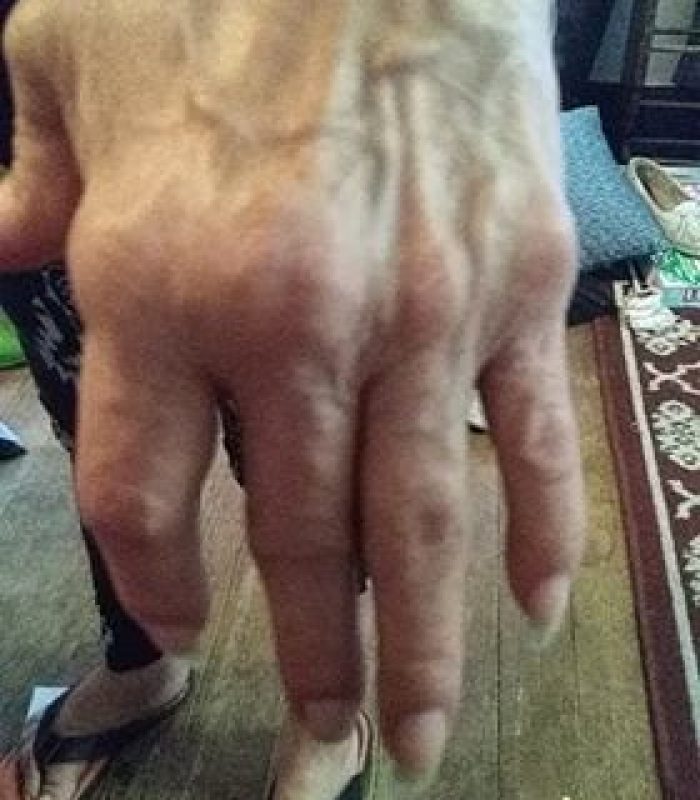When the VA cut me off painkillers, cold turkey, I turned to cannabis. And that changed everything.
My name is Mark. I’m a vet and I injured my back 27 years ago in the military. I have been on muscle relaxers, anti-inflammatories, gabapentin (3600 mg per day), oxycodone, morphine, tramadol, and cymbalta. In addition, I had to get steroid shots a couple times a year. This is my story about how my life was saved when the VA cut me off painkillers.
The oxy and morphine were working to a certain extent, but after being on those for a year, the VA cut me off cold turkey. I went through six months of HELL. I ended up turning to cannabis in order to deal with the withdrawal symptoms. They were so severe I definitely could not have made it through without smoking.

Life as a Vet without Cannabis
I was then told that I needed to have surgery on my thoracic spine, but after seeing two different neurosurgeons they both told me it was too risky and they didn’t want to do it.
When I was told I was going to have to live with all of my problems and I needed to continue to get nerve blocks and use pain medication for the rest of my life, I decided to start smoking cannabis again because at that point I was only able to stand/walk for a short time. I was mostly confined to my recliner.
When I started smoking, I became able to move and function.
I was able to mow my yard and work around the house again. Nothing else has been able to control my pain and give me the quality of life that cannabis has. Since I started smoking I have been able to get off of all my other medications, except thyroid medicine.
Now I live in Alabama so, unfortunately, I have to buy on the black market. I smoke because I don’t have access to any other forms of THC/CBD.
Overall, I hope this will help others. I will be glad to help in any way I can. Thank you for allowing me to share!
From RxLeaf: Cannabis Is a Veteran’s Issue
Veterans are some of the biggest proponents of medicinal cannabis. The veteran’s community commonly treat the lingering effects of physical injuries, and the frustrations of Post Traumatic Stress Disorder, with cannabis. But what does Veterans Affairs have to say about it?

In the US, Veterans Affairs has to follow the protocols of the federal government. Their official policy is as follows, “The U.S. Department of Veterans Affairs is required to follow all federal laws including those regarding cannabis. As long as the Food and Drug Administration classifies marijuana as Schedule […] VA health care providers may not recommend it or assist Veterans to obtain it.” That said, they also state that if a vet like Mark does participate in a state-mandated medical marijuana program, their federal benefits won’t be cut off.
That’s great news for veterans in states with medical cannabis programs. While doctors cannot actively recommend or prescribe cannabis, they can discuss it and build it into a holistic approach to treatment. The VA affairs website goes on to say providers can “discuss marijuana use with Veterans as part of comprehensive care planning, and adjust treatment plans as necessary.” Personal and retired vets have limited options and its common to hear vets say, “The VA cut me off painkillers.”
Cannabis is still not legal federally in the U.S. So, if you are a vet, please be careful. Until it is legal, check out programs like The Veterans Cannabis Project. Their mission is to improve U.S. “military veterans’ quality of life through the opportunity of cannabis.” They believe, simply (and rightly), that medical cannabis saves lives, so veterans need full access to it. They not only allow regular veterans to become advocates, but also encourage civilians to. If you’re an American resident, you can sign up for their petition here.
Use Canada As An Example
In Canada, there is no longer any significant difference between provincial and federal policy on therapeutic cannabis. The VA office has issued a policy update confirming veterans can get reimbursement. Veterans Affairs Canada even reimburses veterans with medical cards $8.50 Canadian per gram. They will reimburse up to three grams per day as prescribed by a provider.

While there is a very clear difference between the VA benefits of Canada versus those in the US, it is good news to hear that veterans in the US may still access state-mandated medical marijuana programs without fear of federal repercussions. With so many of the benefits of cannabis applicable to the most common diseases, injuries, and mental illnesses experienced by veterans, the vet offices in both countries are taking (mostly) positive steps to support their members.
Still, we at RxLeaf hope that, as more and more states legalize, the momentum will build. Hopefully we will someday see every United States vet have the same high-level medical cannabis care that Canadian ones receive.






GERALD T WAGNER
I’m happy to hear that Marijuana works for some but not all. The government overreach in cutting off pain medications for the elderly and needy. Just because of the war on opioids, doctors are afraid to prescribe pain medication because of government penalties! It’s gotten out of control. Get a hip surgery and have some pain, they tell you to take up to 8 Motrin in a day! An 84 year old lady taking vicodin for arthritis and it worked. Now has to go to her doctor weekly, do a pee test while observed to be sure she’s taking it and not selling it. She says it’s embarrassing!
Fentanyl users have been cut off completely after long term use now are driven to the streets for pain relief. This government approach (like everything they do) is having a negative effect on needy patients, the elderly and on drug users as well.
Wake up government!